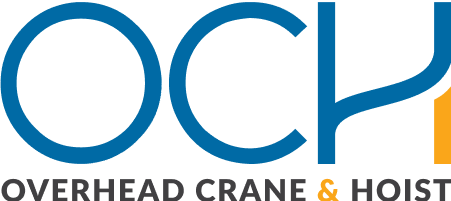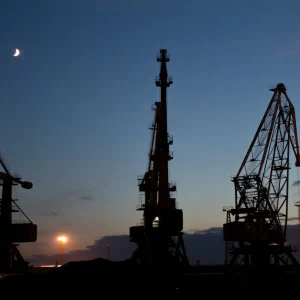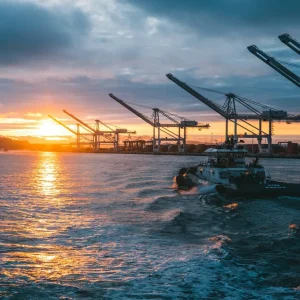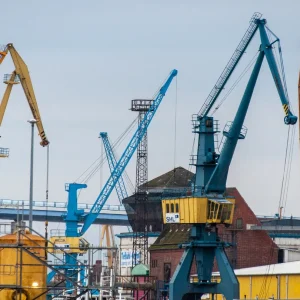
In recent years, societal polarisation has become a significant issue in North America, influencing various industries and sectors. The crane builders, hoist, and industrial lifting equipment industry is no exception. This article delves into how societal polarisation is impacting this industry, examining factors such as workforce dynamics, supply chain disruptions, regulatory changes, and market demand shifts.
Societal Polarisation: An Overview
Societal polarisation refers to the increasing division within society, often along political, economic, and cultural lines. In North America, this phenomenon has been marked by heightened political tensions, economic disparities, and differing views on social issues. The polarisation has led to challenges in governance, policymaking, and social cohesion, all of which trickle down to affect various industries, including the crane and hoist sector.
Workforce Dynamics and Challenges
Recruitment and Retention
Societal polarisation has created a challenging environment for recruitment and retention in the crane and hoist industry. Companies are finding it difficult to attract and retain talent due to varying political and social beliefs that influence workplace culture. For instance, younger workers, who are often more progressive, may clash with older, more conservative employees. This generational divide can lead to a tense work environment, affecting productivity and employee morale.
Training and Development
Training and development programmes are also impacted. The polarised climate has led to differing opinions on the importance and content of training related to diversity, equity, and inclusion (DEI). While some companies see DEI training as essential, others view it as unnecessary or even divisive. This inconsistency can result in a fragmented approach to workforce development, hindering the industry’s ability to maintain a skilled and cohesive workforce.
Supply Chain Disruptions
Political and Trade Tensions
The crane and hoist industry is heavily reliant on a global supply chain. Societal polarisation exacerbates political and trade tensions, which can lead to supply chain disruptions. For example, tariffs and trade restrictions between the United States and other countries, influenced by political decisions, can increase costs and delay the delivery of essential components and materials.
Domestic Supply Chain Issues
Within North America, polarisation has also affected domestic supply chains. States with differing political ideologies may implement conflicting regulations and policies, creating barriers for companies that operate across state lines. These discrepancies can lead to inefficiencies and increased operational costs.
Regulatory Changes and Compliance
Environmental Regulations
One area where societal polarisation is particularly evident is environmental regulation. In North America, differing views on climate change and environmental protection have led to inconsistent regulations at the federal and state levels. For the crane and hoist industry, this means navigating a complex and often contradictory regulatory landscape. Companies must invest significant resources to comply with varying standards, which can impact their bottom line.
Labour Laws and Safety Standards
Labour laws and safety standards are also influenced by polarisation. Progressive regions may implement stricter safety regulations and worker protections, while conservative areas might prioritise deregulation and business-friendly policies. This variability complicates compliance for companies operating in multiple jurisdictions and can lead to legal and financial risks.
Market Demand Shifts
Infrastructure Investments
Government infrastructure investments are a key driver of demand in the crane and hoist industry. However, societal polarisation affects the allocation and prioritisation of these investments. For example, political gridlock and differing priorities between parties can delay the passage of infrastructure bills, leading to uncertainty and fluctuating demand for industrial lifting equipment.
Green Energy and Sustainability
The push towards green energy and sustainability is another area influenced by polarisation. While some regions aggressively pursue renewable energy projects, others remain committed to traditional energy sources. This disparity affects the types of projects available to crane and hoist companies, as well as the equipment specifications required for different energy infrastructures.
The Role of Technology
Automation and Digitalisation
Technological advancements in automation and digitalisation offer potential solutions to some of the challenges posed by societal polarisation. Automation can mitigate workforce issues by reducing reliance on manual labour, while digitalisation can enhance supply chain transparency and efficiency. However, the adoption of these technologies is not uniform across the industry, partly due to differing levels of investment and regulatory support.
Cybersecurity Concerns
As companies increasingly rely on digital solutions, cybersecurity has become a critical concern. Societal polarisation can exacerbate cybersecurity risks, as political and ideological motivations can drive cyberattacks. Companies in the crane and hoist industry must invest in robust cybersecurity measures to protect their operations and data.
Case Studies and Examples
Case Study: The Impact of Tariffs on Supply Chains
A notable example of how societal polarisation affects the crane and hoist industry is the impact of tariffs imposed during recent trade disputes. For instance, the tariffs on steel and aluminium, critical materials for crane and hoist manufacturing, led to increased costs and supply chain disruptions. Companies had to navigate these challenges by seeking alternative suppliers, passing on costs to customers, or absorbing the financial impact.
Case Study: Regional Variations in Environmental Regulations
Another example is the regional variations in environmental regulations. In states with stringent environmental policies, such as California, companies face higher compliance costs and stricter operational requirements. In contrast, states with more lenient regulations offer a more favourable business environment but may face criticism and boycotts from environmentally conscious stakeholders.
Strategies for Navigating Societal Polarisation
Building a Resilient Workforce
To address workforce challenges, companies can focus on building a resilient and inclusive workforce. This includes investing in DEI training, fostering open communication, and creating a culture of respect and collaboration. By embracing diversity, companies can enhance innovation and adaptability.
Diversifying Supply Chains
Diversifying supply chains is another strategy to mitigate the impact of societal polarisation. Companies can reduce reliance on a single source or region by establishing multiple suppliers and exploring local sourcing options. This approach enhances supply chain resilience and reduces vulnerability to geopolitical tensions.
Engaging in Advocacy and Lobbying
Active engagement in advocacy and lobbying can help companies influence regulatory outcomes. By participating in industry associations and collaborating with policymakers, companies can advocate for favourable regulations and policies that support the industry’s growth and stability.
Investing in Technology and Innovation
Investing in technology and innovation is crucial for navigating the challenges posed by societal polarisation. Automation, digitalisation, and cybersecurity measures can enhance operational efficiency, reduce risks, and ensure compliance with varying regulations. Companies that proactively adopt and integrate these technologies will be better positioned to thrive in a polarised environment.
Conclusion
Societal polarisation in North America presents significant challenges and opportunities for the crane builders, hoist, and industrial lifting equipment industry. Workforce dynamics, supply chain disruptions, regulatory changes, and market demand shifts are all influenced by the current political and social climate. By adopting strategic measures such as building a resilient workforce, diversifying supply chains, engaging in advocacy, and investing in technology, companies can navigate these challenges and continue to grow in a polarised society. Understanding and adapting to these dynamics will be essential for the industry’s long-term success and sustainability.
